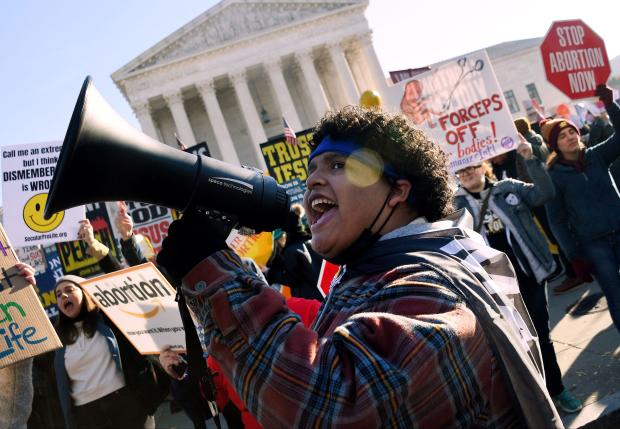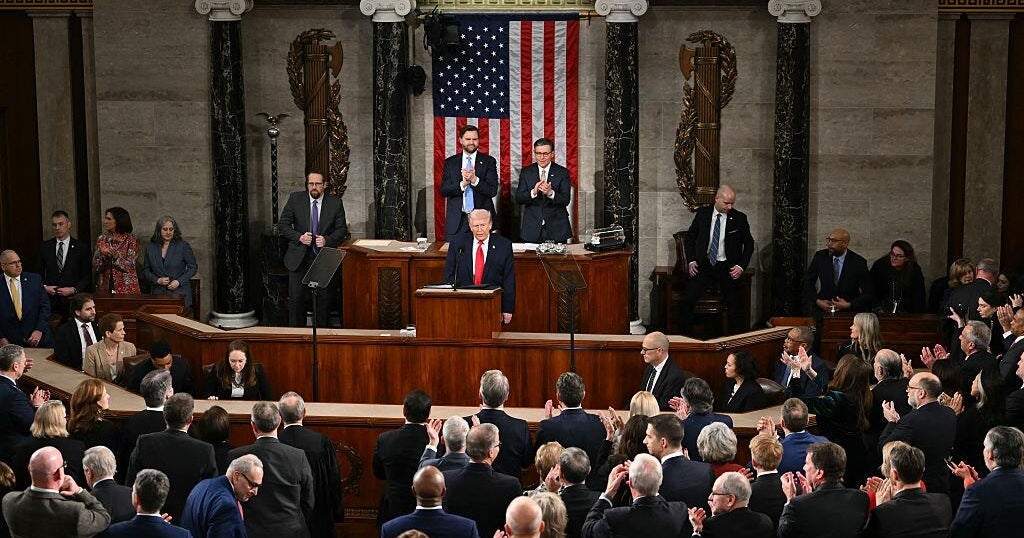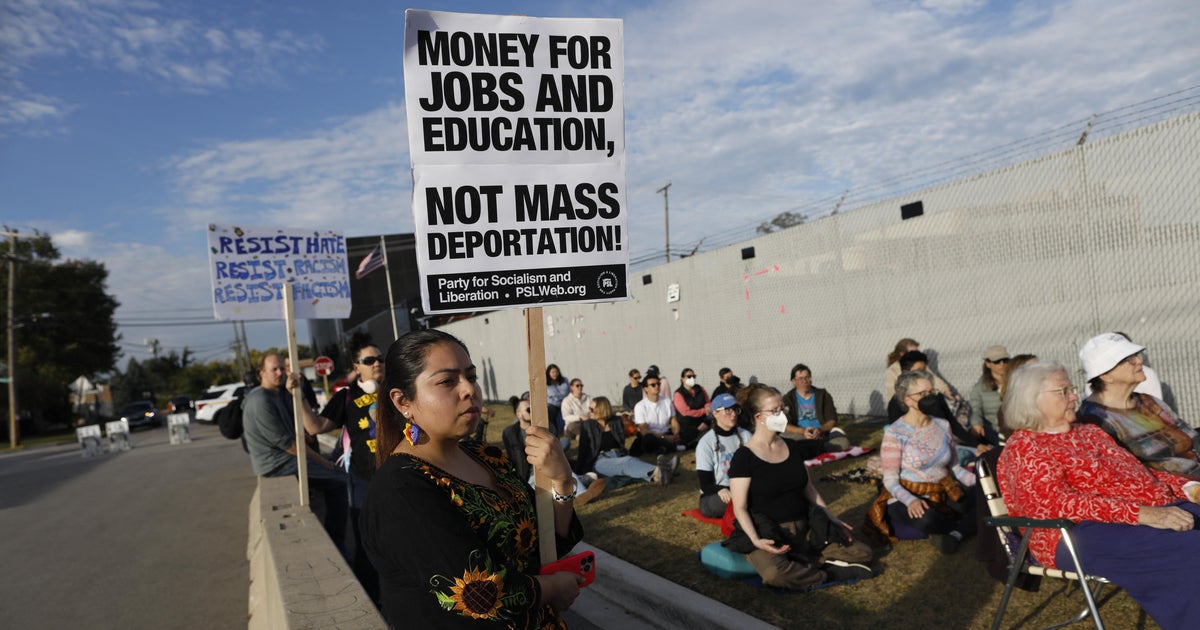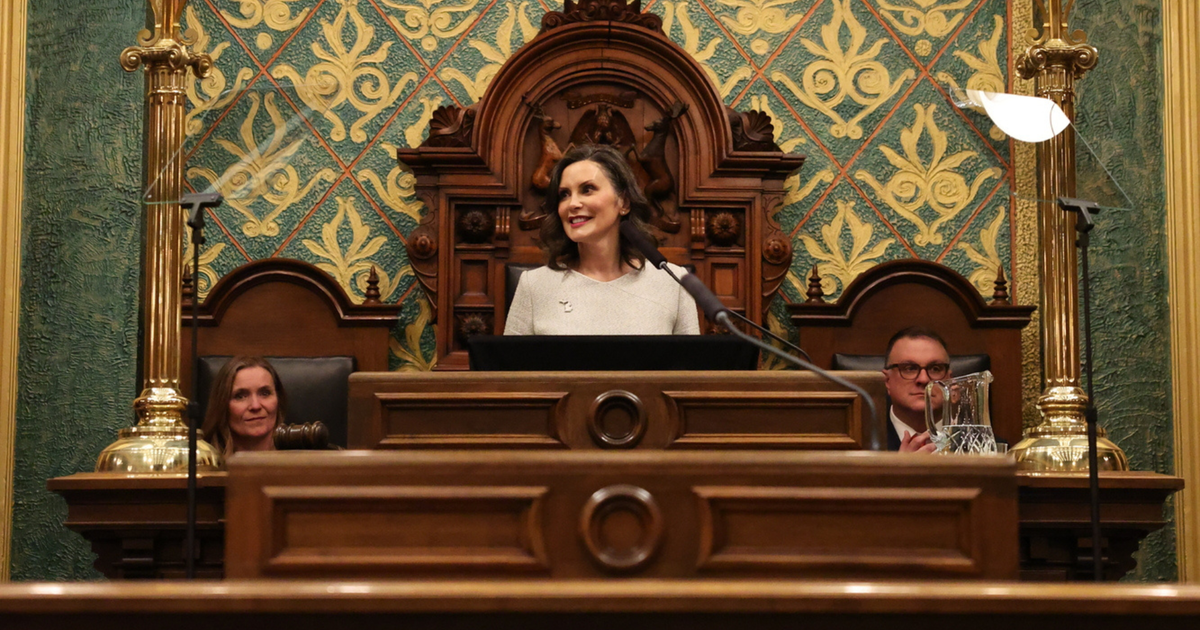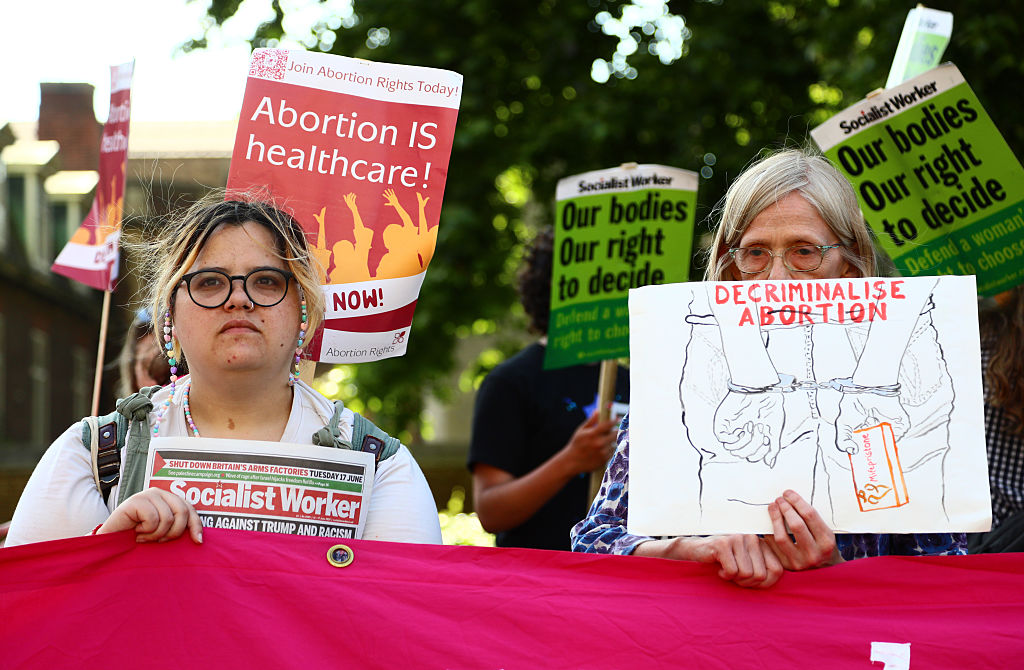Supreme Court signals support for upholding Mississippi's restrictive abortion law
Washington — The future of abortion rights faced its most consequential test in nearly 30 years Wednesday when the Supreme Court convened to hear a high-stakes showdown taking aim at nearly five decades of precedent, with the conservative justices appearing inclined to let stand a Mississippi law at the heart of the case and pave the way for states to impose more stringent limits on abortion.
The Supreme Court heard nearly two hours of arguments in the legal battle involving the Mississippi law that prohibits abortions after 15 weeks of pregnancy, which directly conflicts with its past decisions on abortion. In the landmark 1973 decision in Roe v. Wade and reaffirmed in 1992's Planned Parenthood v. Casey, the high court said states cannot ban abortion before fetal viability — the point at which the fetus can survive outside of the womb, which is now considered to be between 22 and 24 weeks of pregnancy.
Justice Brett Kavanaugh, appointed to the high court by former President Donald Trump, suggested on numerous occasions that abortion policy should best be left to the lawmaking bodies and the people.
"Why should this court be the arbiter rather than Congress, the state legislatures, state supreme courts, the people being able to resolve this?" he asked.
The Constitution, Kavanaugh said, "is neither pro-life nor pro-choice on the question of abortion," and he clarified that if the Supreme Court were to side with Mississippi, states could choose whether to curb access to abortion and to what extent.
Both Chief Justice John Roberts and Justice Samuel Alito questioned the viability line, the standard set by the Supreme Court in 1973.
"Why would 15 weeks be an inappropriate line?" Roberts asked Julie Rikelman, who argued on behalf of abortion providers challenging the Mississippi law. "Viability it seems to me doesn't have anything to do with choice. But if it really is an issue about choice, why is 15 weeks not enough time?"
The chief justice also expressed concern that when comparing abortion laws in the U.S., the nation stands alongside China and North Korea with using the viability standard, a point Rikelman refuted.
The case before the justices is the most consequential abortion dispute to come before the court in a generation, and pro-abortion rights advocates warn a decision upholding the 2018 law would allow states to ban the procedure entirely.
Mississippi, meanwhile, has used the case, known as Dobbs v. Jackson Women's Health Organization, as a vehicle to ask the justices to overturn Roe and Casey. Scott Stewart, Mississippi's solicitor general, said those decisions "haunt our country" and have "poisoned the law."
Kavanaugh listed several of the Supreme Court's major rulings, including Brown v. Board of Education, which found unconstitutional racial segregation in schools, and Obergefell v. Hodges, which legalized same-sex marriage, to demonstrate that the court has overruled precedent, as it is being asked to do in the Mississippi dispute.
"If we think that the prior precedents are seriously wrong, if that, why then doesn't the history of this court's practice with respect to those cases tell us that the right answer is actually a return to the position of neutrality and not stick with those precedents in the same way that all those other cases didn't?" Kavanaugh said, noting that if the Supreme Court had adhered to precedent in those cases, "the country would be a much different place."
While members of the conservative wing of the bench signaled a willingness to allow states to curb abortion rights, the three liberal justices warned such a shift — occurring after the Supreme Court's conservative majority grew to 6-3 — would have negative consequences for the public's perception of the court.
Justice Sonia Sotomayor noted that in the years since Roe and Casey, 15 justices have reaffirmed the viability line, while four — two of whom currently sit on the court — disagree with the standard.
"Will this institution survive the stench that this creates in the public perception, that the Constitution and its reading are just political acts?" she asked. "I don't see how it's possible."
Justice Elena Kagan echoed Sotomayor's concerns, saying a major goal of adhering to precedent is to "to prevent people from thinking that this court is a political institution that will go back and forth depending on what part of the public yells loudest and preventing people from thinking that the court will go back and forth depending on changes to the court's membership."
White House press secretary Jen Psaki told reporters President Biden believes the Mississippi law "blatantly violates" the constitutional right to an abortion and is committed to working with Congress to enshrine that right into law.
"This case presents a grave threat to women's fundamental rights, to all of our rights as protected under Roe v. Wade for nearly half a century," she said.
Mississippi passed its law, the Gestational Age Act, in 2018. But a federal district court swiftly blocked enforcement of the law after Jackson Women's Health Organization, the state's sole abortion clinic, challenged its constitutionality. The 5th U.S. Circuit Court of Appeals upheld the district court's ruling, and Mississippi officials asked the Supreme Court to step in last year.
Jackson Women's Health Organization serves roughly 3,000 women annually and provides abortion services up to 16 weeks of pregnancy. Roughly 100 patients per year obtain an abortion after 15 weeks, lawyers for the clinic told the high court in a September brief.
The Supreme Court's decision to hear the Mississippi abortion case marked a watershed in a decades-long push by anti-abortion advocates to overturn Roe. Those efforts were buoyed by Mr. Trump's reshaping of the high court through his appointments of Justices Neil Gorsuch, Kavanaugh and Amy Coney Barrett, which expanded its conservative majority to 6-3. Mr. Trump pledged to name "pro-life justices" who would overrule the Supreme Court's abortion decisions.
"We may well be on the verge of era when the Supreme Court sends Roe v. Wade to the ash heap of history where it belongs," former Vice President Mike Pence said at an event Tuesday, during which he also called on the high court to "make history."
But Solicitor General Elizabeth Prelogar, who argued on behalf of the Justice Department in favor of the providers challenging the law, told the Supreme Court that if it sided with Mississippi in the case, it would represent an "unprecedented contraction of individual rights."
"The court has never revoked a right that is so fundamental to so many Americans and so central to their ability to participate fully and equally in society," she said.
Republican-led states have already laid the groundwork for a Supreme Court decision that dismantles its landmark decisions on abortion. A dozen states including Mississippi have already passed so-called "trigger bans," in which most abortions would be outlawed if and when the Supreme Court overturns Roe. The Guttmacher Institute, an abortion rights research organization, estimates that if Roe is overturned or weakened, at least 21 states are poised to attempt to ban abortion.
A decision from the Supreme Court is expected by summer 2022.
Adam Brewster contributed to this report.
